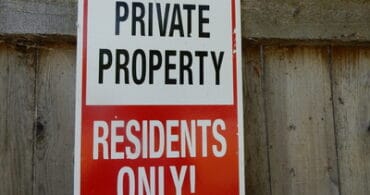Insights - Regulations

Renting Property: To Furnish, or Not to Furnish?
One of the key questions for landlords when preparing to rent out a property has to be, to furnish, or not to furnish? It is certainly an important consideration, as it will have a direct impact on the type of tenant you attract, and the amount of rent you can charge. Let’s explore the pros and cons of renting furnished or unfurnished so that you feel ready to make the ultimate choice for yourself.
Read More
Government Confirms Major Leasehold Changes on the Horizon
Significant changes to English property law and specifically leasehold legislation are set to be introduced as the Government is poised to radically overhaul the system, making it easier and less costly for landlords and property owners to extend leases or convert them to freehold or commonhold in the future.

A Landlord’s Guide to Right of Entry
A lot of landlords are of the opinion that because they own a property, they have an automatic right of entry without first gaining permission from the tenant. There are however clear rules and regulations that dictate when a landlord is allowed, and not allowed, to enter a property, and when tenant permission is required to do so.

Deposit Replacement Schemes Explained
It is often challenging for prospective tenants to find the necessary deposit to secure a property. Even though the Tenant Fees Act 2019 capped deposits at five weeks’ rent, it can still be a considerable sum to gather together. It is no wonder then that the deposit replacement scheme has become a viable alternative for tenants. But how do these schemes work, and should you be relying on them as a landlord?

How UK Planning Law Reforms Could Benefit Property Investors
In its report titled Planning for the Future published in late summer, the government detailed plans for upcoming changes to the planning system in England. The reforms are set to streamline and modernise the planning process and should also spell good news for anyone interested in property investment. Let’s explore why.

Energy Efficiency Regulations: Changes on the Horizon
Since 1 April 2020, it has been law for landlords to ensure all their privately rented properties reach a minimum E-rating for energy performance. This includes all new and existing tenancies. Measures are now being put in place to enforce compliance, and plans are afoot to increase the rating requirement from ‘E’ to ‘C’ for all new tenancies from 2025 and all existing tenancies from 2028.

Lockdown Latest: Rental Market Open for Business
Housing secretary Robert Jenrick has announced that the rental market in England will stay open during the new four-week lockdown starting 5th November. Renters remain able to move, letting agents and removal firms can continue to do their jobs, and property maintenance and repair contractors, cleaners and inventory clerks can enter properties, providing they adhere to COVID-secure guidelines.

A Guide to Screening International Rental Applicants
Screening is vital to assess tenants to ensure they will pay on time and take care of your property. But what specifically needs to be checked for overseas tenants to verify their right to rent? Read on to learn the ins and outs of the official process so that you know what’s required to meet the strict Government guidelines.

What Landlords Need to Know About Current Eviction Rules
The national ban on residential evictions that ran for six months until 20th September, followed by the introduction of new six month notice periods for evictions which will be in place until at least the end of March 2021, have put additional pressure on landlords already facing tough times during the pandemic. So what can landlords do to find their way through these challenging times?

The New Green Homes Grant: What does it mean for Landlords?
Landlords are set to benefit from the Government’s latest scheme which offers vouchers up to £10,000 to cover the costs of making energy efficiency improvements to privately rented properties. Now is the ideal time to start gearing up for the new energy efficiency measures currently under consultation, which could demand that all properties let privately from April 2025 meet an EPC rating of C or above.






